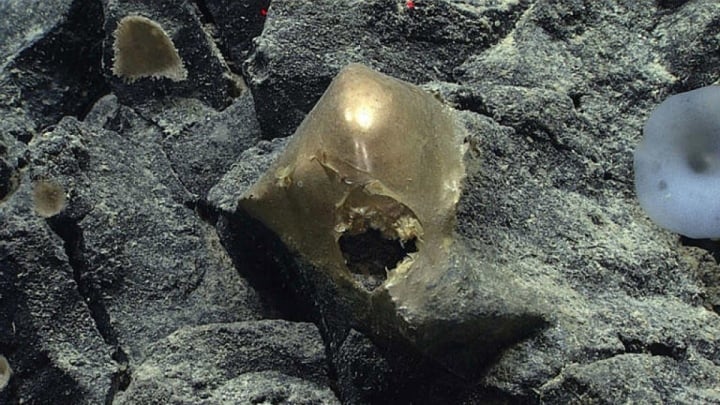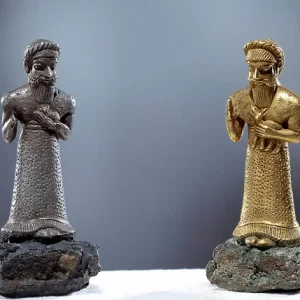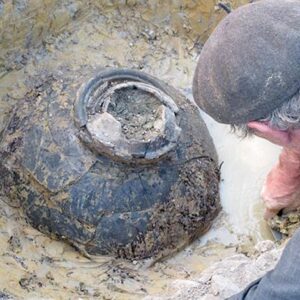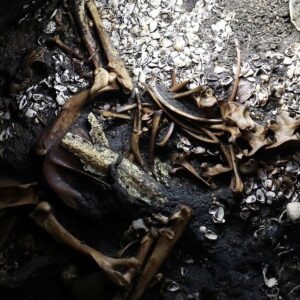American scientists have discovered a mysterious dome-shaped specimen deep at the bottom of the Alaskan sea, but no one knows what it is. Ocean researchers used remote survey vehicles last week to spot a strange object on rocks more than 3,300 feet above the Gulf of Alaska.
The US National Oceanic and Atmospheric Administration (NOAA) said in a statement that one of the ship’s cameras captured what appeared to be a yellow hat.
The strange object on the seabed is more than 10cm in diameter and has a small tear.
“As the camera got closer, scientists were confused as to what it was, with initial thoughts that it might be the remains of sponges, coral or dead eggshells,” NOAA revealed.

According to this agency, “With an image that seems to exist only in fairy tales, this specimen is called the ‘golden ball’ or golden egg.”
Sam Candio, NOAA ocean exploration coordinator asked: “What is so strange and fascinating in the depths of the sea?”
According to NOAA, “Although we collected this ‘golden orb’ and brought it on board, we have not been able to determine its biological origin.”

Candio said it’s unclear whether the golden ball is related to an established species, a new species or an unknown growth stage of an existing animal.
“New species could become new sources of raw materials for treatments, vaccines, food or other social benefits. The data and information collected during this expedition will help us close the gap in our understanding of the planet to better manage and protect it.”
While researchers hope this discovery will provide new information, they still don’t know what this “golden egg” is.

“It is a reminder of how little we know about our planet and how much remains undiscovered about our oceans,” commented Candio experts.
Jon Copley, Professor at the University of Southampton, also has similar feelings to Candio experts.
“We often find something in the deep sea that we have never seen before or cannot immediately recognize because the ocean is so vast and we have only been exploring the creatures here for a few centuries. through,” Professor Copley said.





